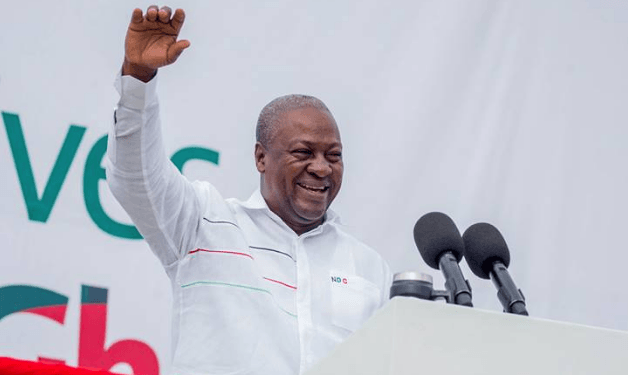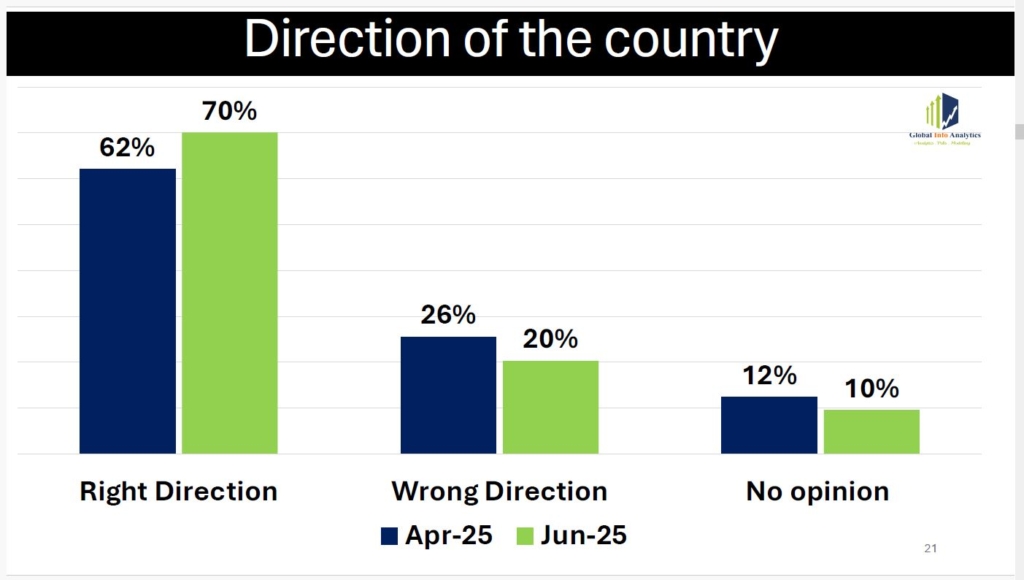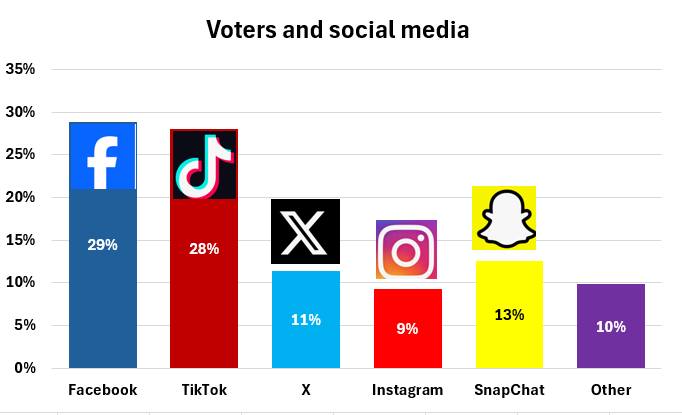Voters in All 16 Regions Say Ghana is on Right Path — Global InfoAnalytics Poll Reveals

A new nationwide survey conducted by Global InfoAnalytics has revealed that a majority of Ghanaian voters believe the country is moving in the right direction, despite mounting public concerns over illegal mining menace.
A snippet of the poll, released over the weekend by Mussa K. Dankwah, Pollster and Head of Research at Global InfoAnalytics, indicates that optimism among the electorate remains strong for President John Mahama’s administration across all 16 regions, including the politically significant Ashanti Region.
The survey also reveals that two in three voters prefer Ghana to be led by younger leaders, with over 70% of voters aged 18–44 expressing a preference for young leadership.
This marks the third consecutive poll in 2025 in which Global InfoAnalytics has reported similar findings, reflecting sustained public confidence in the government’s policies and the national direction.
While environmental concerns and anti-galamsey protests continue to dominate headlines, the poll suggests these issues, though serious, have not yet significantly eroded public confidence in the overall trajectory of the country.

Although the exact percentage and regional breakdown of respondents holding a positive outlook were yet to be released, earlier editions of the poll conducted in April and July reported that 62% and 70% of respondents, respectively, believed the country was on the right path.
In July, only 20% of voters believed Ghana was headed in the wrong direction, down from 26% in April, indicating a continued improvement in public sentiment.
Voters on Social Media
The September poll also revealed that at least 70% of voters are active on social media, with TikTok users catching up to Facebook users in a dramatic shift, especially among the youth.
According to the data, 29% of voters now use Facebook, down from 31% in July, while TikTok usage rose to 28%, up from 25% in the same period.

“This development is likely to significantly influence how future elections are run, as well as political marketing communication and strategy,” said Mr. Dankwah.
“The battlefield has been redrawn, and political parties need new commanders for the battle ahead.”
This surge in optimism comes on the heels of several government initiatives, including cuts in public expenditure and restrictions on unnecessary travel by government officials.
These measures have led to positive trends in the economy, further reinforcing public approval.
Public Confidence amid galamsey protests
The findings come at a time when anti-illegal mining protests—particularly in the capital have intensified.
Civil society groups, traditional leaders, and youth activists continue to pressure the government to declare a state of emergency in affected mining regions, citing the widespread destruction of farmlands, rivers, and forests by galamsey operators.
Despite these tensions, the poll suggests that voters remain encouraged by progress in other areas of governance, including the “Big Push” infrastructure initiative, macroeconomic stability, and ongoing education reforms.
Notably, in the Ashanti Region—a traditional stronghold of the opposition New Patriotic Party (NPP), the majority of respondents indicated that the country is on the right path. This unexpected shift could carry significant implications for the next general elections if the status quo remains the same.
Political analysts suggest the results may reflect growing support for the ruling party’s national agenda or increasing disillusionment with the opposition’s recent performance.
“This is the third consecutive poll showing a clear majority of Ghanaians believe the country is heading in the right direction—even in regions where political support for the government has historically been weak,” noted social commentator Mr. John Teye.
“It suggests that broader national issues are resonating more strongly with voters than regional or partisan concerns.”
Opposition Pushback
However, the latest findings have been met with skepticism by the opposition, with some leading members accusing pollster Mussa Dankwah of attempting to divert attention from the galamsey crisis.
They questioned the timing of the poll’s release, arguing it may be a strategic move to shift the national conversation.
Despite the criticism, Global InfoAnalytics remains widely respected for its rigorous methodology and has established itself as a trusted source of public opinion data within Ghana’s political landscape.
The organization publishes quarterly polls each year, with releases in April, July, and September.
